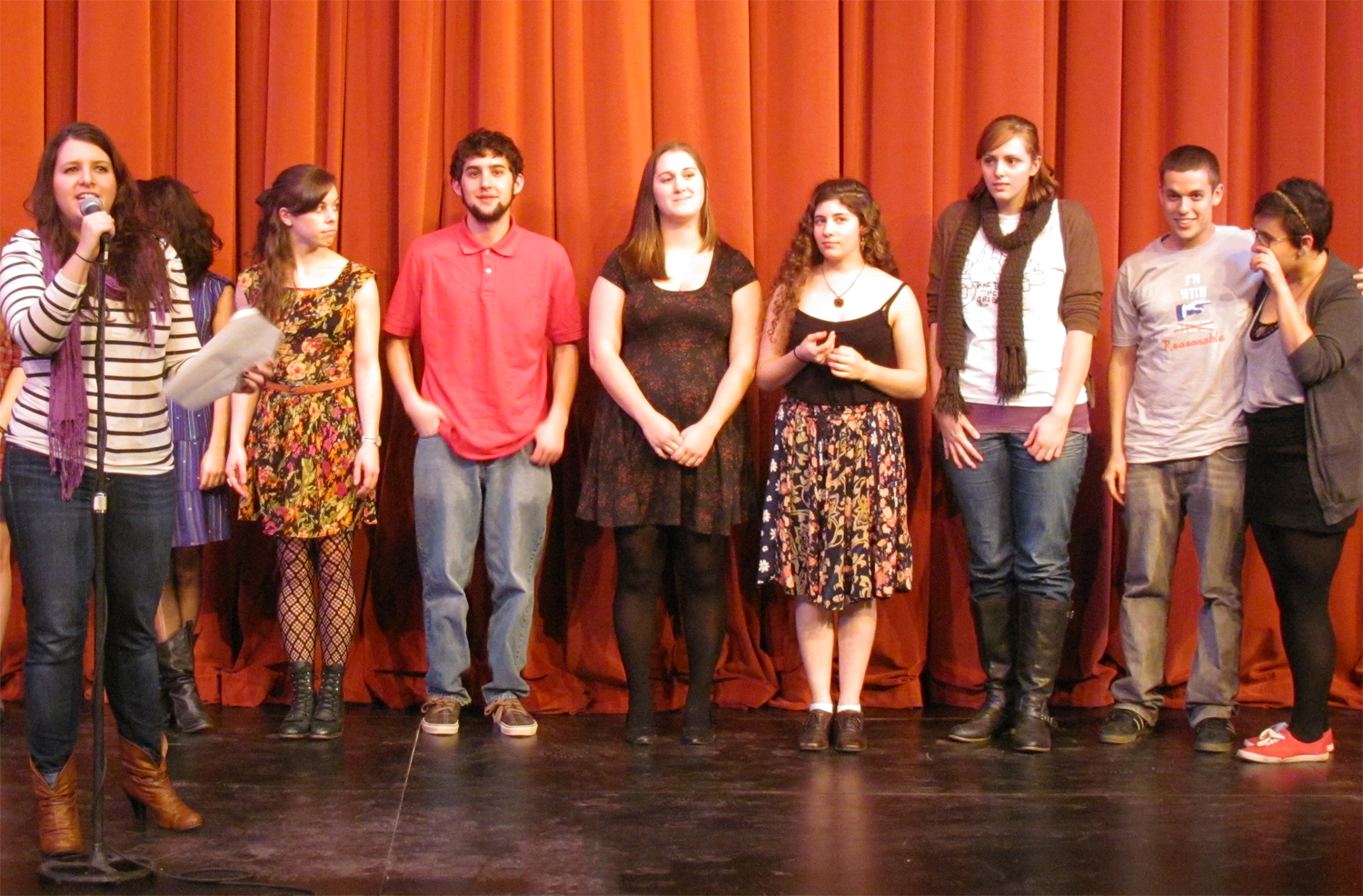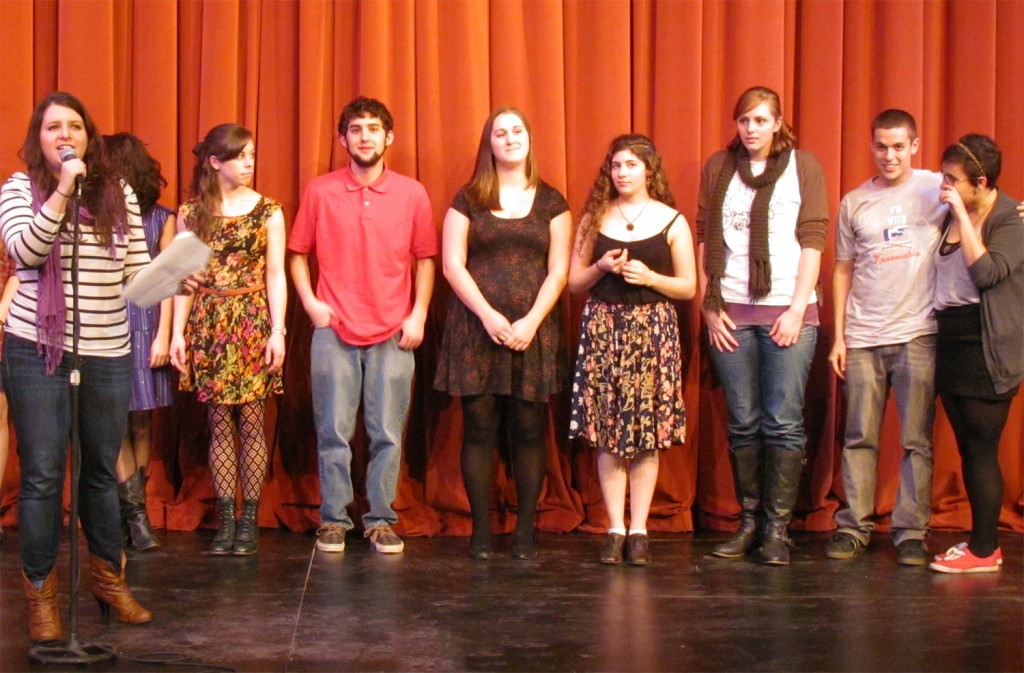

While most people were heading home for Thanksgiving break, a congregation of over 150 students chose to stay on campus Tuesday, Nov. 23 and pile into McKenna Theatre for a night of spoken word poetry and serious competition.
After preliminary poetry slams on Sept. 22, Oct. 12 and Nov. 4, 15 finalists took the stage to compete for a spot on the 2010-11 New Paltz Slam Team, deciding who will go to the College Unions Poetry Slam Invitational (CUPSI) in April.
The competing poets were scored by a panel of five impartial judges chosen from the audience just before the slam began. These judges scored poets on both content and performance on a scale of 0.0 to 10.0. Of the scores each poet received, the high and low scores were dropped and the middle three were added together, giving the poet a total from zero to 30.
Some audience members voiced dissatisfaction with the scoring system, saying that it might be better to have “at least one professional judge on the panel.” Slam Team coach and former SUNY New Paltz student Megan Falley said she disagreed.
“That’s not how a poetry slam works, ever,” Falley said. “The random judges reminds poets of the classic slam tag line, ‘the point is not the points, the point is the poetry.’ There is no board of elitist judges grading your poetry. It isn’t the olympics. There is no snobbish institution of poetry slam.”
Exceeding the three-minute time limit resulted in a penalty, reducing the offending poet’s score. The time limit, which caught many of the evenings competitors, was treated as a necessity and the audience was encouraged by the slam’s host Sean Gallagher to shout “Fuck, time” whenever poets were penalized.
The New Paltz Slam Team won the Wade-Lewis Poetry Slam Invitational last semester, beating out teams from around the country, including many Ivy League schools. With large shoes to fill, Falley said she is confident that this season’s team is more than capable of succeeding again.
“There are a lot of first-year members who have very little experience in slam, and I’m electric with the thought of introducing them to famous slam poets, exposing them to the scene, throwing them into fierce competition and attending regional and national competitions where they will meet hundreds of poets,” she said. “It will be like watching someone the first time that they see snow.”
After a second round, students Sabrina Adikes, Chris Milea, Breanna Metcalf-Oshinsky, Jackie Wolozin and Karly Fesolwich emerged victorious, winning a spot on the team. The final spot came down to a tie between students James Warren and Kate Brady.
To break the tie, Brady and Warren were put on the spot and asked to perform a third poem. After an effort by both poets, the judges awarded Brady as the winner.
“That tie with [Warren] was intense,” Brady said. “[Warren] and I are the co-presidents of [Rap Poetry Music] this year, so it was a pretty crazy coincidence when we had to duke it out for the last spot.”
Attendees were also treated to an opening performance by featured poet Alvin Lau, who has won numerous accolades and been featured on two seasons of HBO’s Def Poetry Jam. A self-described Chinese hip-hop Charlie Brown, Lau performed poetry that varied in subject matter, including one about an experience of losing hair during chemotherapy in “Love Song to My Hair.”
Falley commended all 15 of the competing students on their performances, and was regretful that the club’s budget would only allow for six poets to attend CUPSI.
“Hopefully with the growing success of the team we can request more budget money to widen the program in the future,” she said.
For those interested in following the progress of the slam team in their upcoming competitions, information is located on the group’s official Facebook page.
